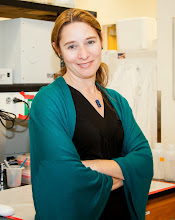Whether it’s a scientific talk or a wedding toast, what we say is important. Just as important, though, is what we don’t say. Filler words-those “ums”, “ahs”, “likes” and “you knows”, take power away from our words, as the audience fights to stay on course, to understand our message, while dodging filler word obstacles.
I once attended a talk by a renowned biologist (who shall remain nameless) that featured breathtaking images, cutting-edge technology, and an “um” every 10 seconds. Yes, I still learned a lot, but imagine how much more I would have learned if the biologist’s speech had been as smooth as the time-lapse movies of this person’s data.
So how do we get rid of those filler word obstacles? Start simple…in ordinary conversation. Next time you’re talking to your significant other, or best friend, mom, dad, cat, or dog, pay attention to your filler words. If your spouse asks you a question, do your start your answer with “um…” before stating your answer? Ask your conversation partner for a “do over” (you know, like in 4th grade kickball) and answer the question again, sans filler word. In my experience, becoming aware of those fillers, and making a conscious effort to eliminate them from normal conversation, goes a long way toward ridding them from more formal speaking opportunities - like scientific talks.
Check out this epic spoken word piece by slam poet Taylor Mali, where he addresses the issue of filler words (and vocal tone…which we’ll get to in future posts) in a fun and compelling way.

No comments:
Post a Comment